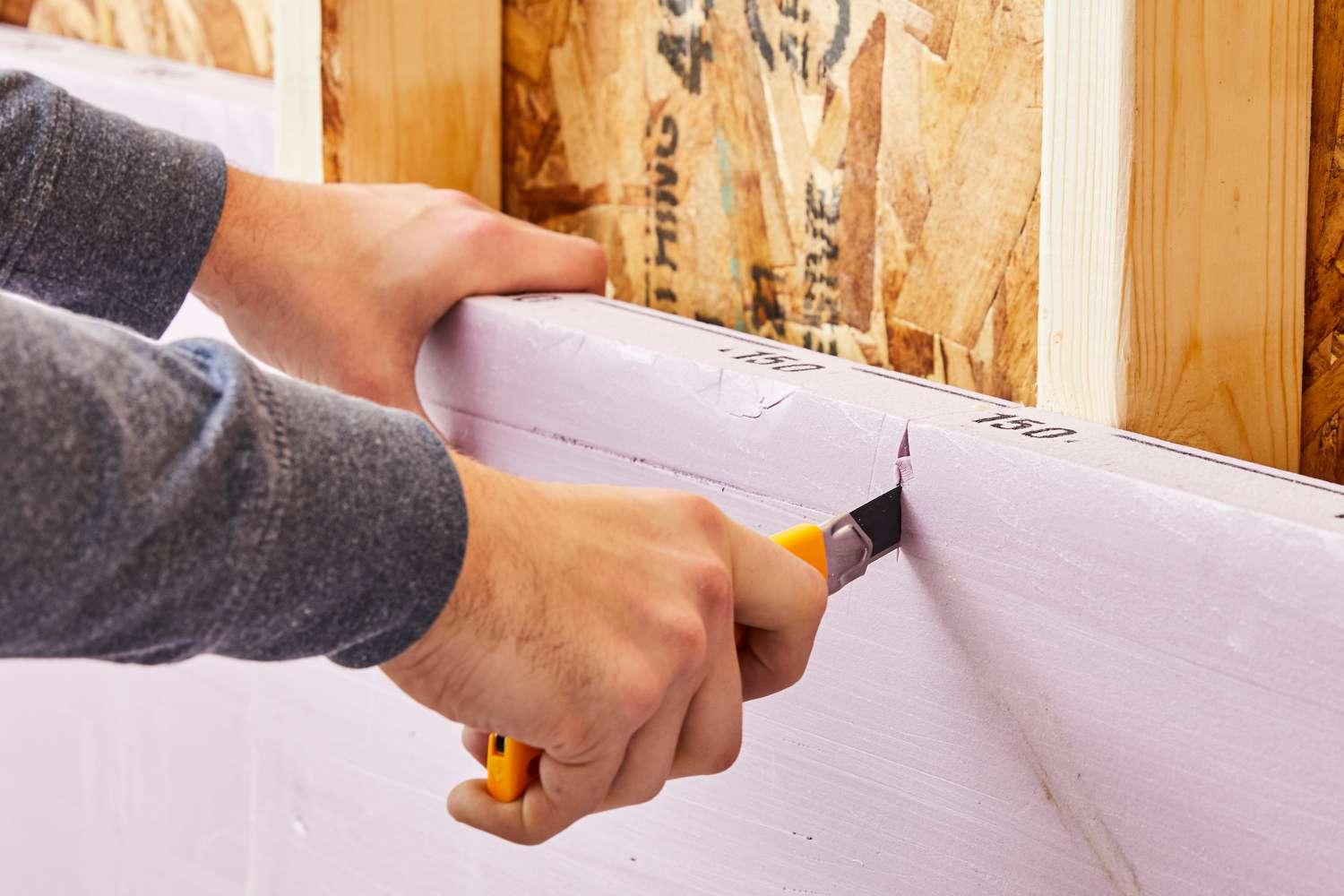When it comes to insulating your home or commercial property, rigid foam insulation is one of the top choices for both new constructions and renovations. Its high R-value, durability, and moisture resistance make it suitable for various climates, especially in colder regions like Ontario and across Canada.
What is Rigid Foam Insulation?
Rigid foam insulation is composed of solid boards made from materials like XPS (extruded polystyrene), polyisocyanurate (PIR), or expanded polystyrene (EPS). These materials are known for their superior thermal performance, represented by high R-values. Unlike other types of insulation, such as fiberglass, rigid foam boards maintain their structure and R-value over time, ensuring long-lasting insulation efficiency.
For example, XPS rigid insulation has a rigid foam R-value of 4.7 to 5.0 per inch, making it an excellent choice for Ontario’s extreme weather conditions. These foam boards prevent heat loss through walls, roofs, and foundations, keeping your home comfortable and energy-efficient.
Benefits of Rigid Foam Insulation
- Superior Thermal Resistance:
A significant advantage of rigid insulation is its high R-value. For instance, a 2-inch foam insulation board offers an R-value of approximately 10. This insulation helps lower energy bills by maintaining indoor temperatures more effectively.
Additionally, XPS extruded polystyrene retains its thermal resistance over time, unlike some other types of insulation. - Moisture Barrier:
Rigid styrofoam insulation is impervious to water, which helps protect your home from mold growth and moisture damage. It’s commonly installed in basements and foundation walls for added protection against the cold, damp environment common in Ontario. - Structural Stability:
Besides providing insulation, foam board insulation adds structural support to your home. For example, 1-inch foam insulation boards can increase the rigidity and strength of walls, contributing to the overall stability of the building’s structure.

Applications of Rigid Foam Insulation
- Exterior Walls: Rigid foam boards are commonly used to create a continuous insulation barrier, preventing heat loss through framing components and improving energy efficiency.
- Foundations and Basements: In Ontario, where cold ground temperatures can lead to heat loss in basements, 2-inch foam insulation boards are often used to enhance thermal performance.
- Roofs and Attics: In colder climates, using rigid foam insulation in roofs and attics is essential to prevent heat from escaping through the top of the building.
In some cases, rigid foam is combined with other insulation types to optimize energy efficiency in challenging areas, such as homes with irregular wall cavities.
Types of Rigid Foam Insulation
- There are primarily two types of rigid foam insulation widely used in construction:
- XPS (Extruded Polystyrene): Known for its excellent moisture resistance and stable R-value (about 4.7 to 5.0 per inch), making it ideal for below-grade applications like basements and foundation walls.
- Polyisocyanurate (PIR): This type of rigid foam offers the highest R-value per inch, often exceeding 6, making it an excellent choice for applications where maximizing insulation efficiency is critical
Disadvantages of Foam Board Insulation
While foam board insulation is highly effective, it does have some downsides:
- Cost: Rigid foam boards can be more expensive than other insulation options like fiberglass.
- Installation: Proper installation is crucial, especially for rigid foam insulation used in exterior applications, as improper sealing can lead to air and moisture infiltration.
Understanding R-Values in Rigid Foam Insulation
The R-value of insulation measures its thermal resistance. For example, rigid foam insulation R-value per inch ranges from 4.7 to 6, depending on the material. This high R-value means that even relatively thin boards, such as a 1/2 inch foam insulation board, can provide significant thermal protection. In contrast, thicker boards, like 2-inch foam insulation boards, offer even higher energy efficiency.
Rigid Foam Insulation Installation
Installing rigid foam insulation is straightforward. Boards can be cut to size and fitted into wall cavities, basements, or attics. To maximize efficiency, it’s important to seal all gaps and edges with caulk or spray foam to prevent air leaks. Proper installation ensures that the insulation performs at its maximum potential.
FAQs About Rigid Foam Insulation
- What are the disadvantages of rigid foam insulation?
The main disadvantages are the higher cost compared to other insulation types and the need for proper installation to avoid air gaps that can reduce its effectiveness.
- What are the two types of rigid foam insulation?
The two main types are XPS (extruded polystyrene) and polyisocyanurate (PIR), each offering different levels of R-value and moisture resistance.
- How does rigid foam insulation work?
Rigid foam insulation works by trapping air or gas within its cellular structure, which reduces heat transfer. Its high R-value ensures it effectively prevents heat from escaping or entering the building.
- How thick does rigid foam insulation need to be?
The thickness of rigid foam insulation depends on the application and desired R-value. For example, a 2-inch foam insulation board typically offers an R-value of 10, which is suitable for exterior walls or foundations in colder climates like Ontario.
Rebates
-Interest free loan program (Requires an energy audit with a certified NRCAN energy advisor).
-Energy audit fee is paid by the client and NRCAN will reimburse you up to 600$ of the assessment fee once the upgrades are completed.
Canada Greener Homes LoanLinks to Other Services We Provide:
Areas We Proudly Serve:
Ontario
Frontenac, Lanark, Leeds and Grenville, Lennox and Addington, Ottawa, Prescott and Russell, Renfrew, Stormont, Dundas and Glengarry
Quebec
Antoine-Labelle, Argenteuil, Beauharnois-Salaberry, Deux-Montagnes, Gatineau, L'Assomption, La Rivière-du-Nord, La Vallée-de-la-Gatineau, Laval, Le Haut-Saint-Laurent, Les Collines-de-l'Outaouais, Les Laurentides, Les Moulins, Les Pays-d'en-Haut, Longueuil, Mirabel, Montréal, Papineau, Pontiac, Roussillon, Thérèse-De Blainville, Vaudreuil-Soulanges,

